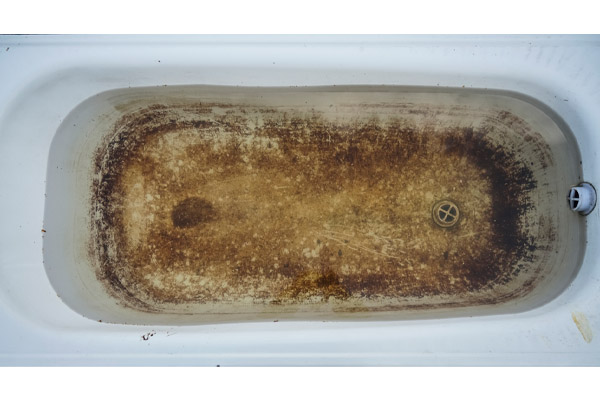The Comprehensive Guide: Effluent Rising Through the Bathtub
The Comprehensive Guide: Effluent Rising Through the Bathtub
Blog Article
They are making a number of great annotation regarding Why is Sewage Backing Up Into My Bathtub? overall in the article following next.

Sewage back-up in the tub can be a traumatic and unhygienic trouble for any kind of home owner. Not just is it inconvenient, however it additionally poses major wellness dangers and indicates underlying problems with the plumbing system. Understanding why sewage is coming up with the bath tub is important for taking ideal activity to deal with the issue properly.
Intro to the Problem
Understanding the Issue
When sewage draws back up right into the tub, it's a clear sign of an issue with the drain system. The wastewater that should be streaming away from your home is instead locating its way back right into your living space, which can result in considerable damages and health hazards.
Prospective Reasons
Several variables can add to sewer back-up in the tub. From clogs in the sewer line to concerns with the plumbing framework, determining the root cause is necessary for finding a solution.
Usual Reasons for Sewer Backup
Blockages in the Drain Line
One of one of the most usual reasons for sewer back-up is a blockage in the drain line. This can occur as a result of the build-up of debris, grease, or international objects in the pipes, protecting against appropriate circulation and triggering sewage to support right into your bath tub.
Tree Root Intrusion
Tree origins looking for wetness and nutrients can infiltrate sewer lines via small fractures or joints. Over time, these origins can grow and broaden, causing significant damages to the pipes and leading to sewer backup problems.
Aging Facilities
Older homes may have dated plumbing systems that are much more vulnerable to rust, fractures, and damage. As pipes age, they become more prone to leakages and blockages, increasing the chance of sewage backup events.
Heavy Rainfall or Flooding
During periods of heavy rainfall or flooding, the sewer system might come to be overwhelmed with excess water, causing back-ups and overflows. This can lead to sewer supporting right into tubs and other fixtures inside the home.
Health Threats Associated with Sewer Back-up
Contamination of Water System
Sewer back-up can infect the water system in your home, positioning a major health danger to you and your household. Exposure to infected water can lead to gastrointestinal problems, skin infections, and various other diseases.
Spread of Condition
Sewer contains unsafe microorganisms, infections, and parasites that can trigger a variety of conditions, including liver disease, cholera, and gastroenteritis. Entering into contact with sewer or polluted surface areas places you at risk of infection.
Mold Growth
Moisture from sewage backup can produce ideal problems for mold growth in your house. Mold spores can intensify respiratory issues and trigger allergic reactions in delicate people, making punctual cleaning crucial.
Indicators of Sewer Back-up
Foul Odors
Unpleasant smells originating from drains or fixtures, specifically in the washroom, may indicate sewer backup concerns. These odors are usually strong and persistent, indicating a problem that needs prompt interest.
Slow Draining Fixtures
Bath tubs, sinks, and toilets that drain pipes gradually or not in all could be experiencing sewage backup. If numerous fixtures are affected all at once, it's most likely that the problem originates from an usual point, such as the primary drain line.
Gurgling Noises
Weird gurgling or bubbling noises originating from drains pipes when water is running somewhere else in your house are a measure of air trapped in the plumbing system. This air buildup can result from sewage backup and should be investigated quickly.
Immediate Actions to Take
Shutting Off Water
In case of sewage backup, it's essential to turn off the water supply to stop additional contamination and damage. Situate the primary water shutoff valve in your home and closed it off up until the issue can be dealt with.
Contacting a Specialist Plumber
Handling sewer backup is not a do it yourself job. Call an accredited plumber with experience in handling sewage-related problems to assess the circumstance and execute necessary repair services or cleanups.
Preventing Contact with Infected Water
Till the sewer back-up is fixed, avoid contact with contaminated water to stop the spread of germs and virus. Use protective gear if you should be in the affected area and clean your hands completely later.
Safety nets
Normal Maintenance of Sewage System Lines
Schedule regular examinations and upkeep of your sewage system lines to recognize and attend to possible issues prior to they escalate into major troubles. This can consist of cleaning debris, examining for tree origin breach, and fixing any type of damaged pipelines.
Setting Up Bayou Valves
Consider mounting backwater shutoffs in your plumbing system to avoid sewer from flowing back right into your home during durations of heavy rainfall or flooding. These shutoffs instantly close when water draws back up, safeguarding your residential or commercial property from contamination.
Correct Disposal of Home Waste
Stay clear of flushing anything besides bathroom tissue and human waste down the toilet to avoid blockages and clogs in the sewer line. Dispose of grease, oil, and other home chemicals effectively to reduce the danger of plumbing issues.
Tidying up After Sewer Back-up
Sanitation Procedures
Extensively decontaminate and disinfect influenced locations after sewer backup to get rid of harmful germs and stop mold and mildew development. Usage proper cleaning items and safety equipment to ensure risk-free and efficient cleaning.
Repair of Impacted Areas
Repair any damages to floor covering, walls, or fixtures brought on by sewage back-up. Depending upon the degree of the damages, you might require to change carpets, drywall, or other products to restore your home to its pre-loss problem.
Why is there sewage coming up from my bathtub?
These gas fumes, like hydrogen sulfide – the gas that leaves a rotten egg smell in its wake and is highly flammable and toxic – can be hazardous to your health. Sewage poses major health risks as it contains harmful bacteria and microorganisms that can be dangerous if exposed to them.
Sewage cleanup should be considered an emergency.
So, why is there sewage coming up from your bathroom? There are several common causes of a sewage backup.
The most common reason for sewage coming up through your bathroom is a clogged sewer line. All plumbing in your bathroom connects to a single drain pipe that leads to the sewer line under your house. This drain line carries all wastewater and sewage away from your home to the city’s sewer system.
When the sewer line becomes clogged or blocked, wastewater has nowhere to go but back toward your house. This results in sewage coming up through your drains, often starting with your tub or shower.
Another culprit may be the sewage ejector pump, which is used when a bathroom, laundry room or any other type of plumbing fixture is located below the level of the main sewer or septic line flowing from the house. Most commonly, ejector pumps are used in homes with basement bathrooms or laundry rooms.
When you experience sewage coming up through your bathtub, it’s always best to contact a professional. Attempts to fix a clogged sewer line without experience often lead to more plumbing damage.
Make sure that no one enters the affected area, and open as many windows as possible. Pre-treat the flooded area with small splashes of chlorine bleach. Wear protection gear like rubber gloves, a mask, and water-resistant coveralls.
https://www.shawlocal.com/the-herald-news/sponsored/2022/08/17/omega-plumbing-10199038/

Hopefully you enjoyed our post on What To Do If Sewage Starts Backing Up Into the Shower. Thanks so much for spending some time to read through our article. Sharing is nice. Who knows, you may be helping someone out. I take joy in your readership.
Visit The Following Page
Report this page